Feats are an optional rule that many D&D campaigns choose to use to let players customize their characters even more deeply than just choosing a race, class, background, and subclass. The feats in the Player’s Handbook give characters the ability to improve their skills as a combat master, social savant, or exploration expert in various specific ways—and the new feats in Tasha’s Cauldron of Everything continue this tradition.
Check out these fifteen new feats! How can you use them to enhance your character’s story, or grant them explosive new powers?
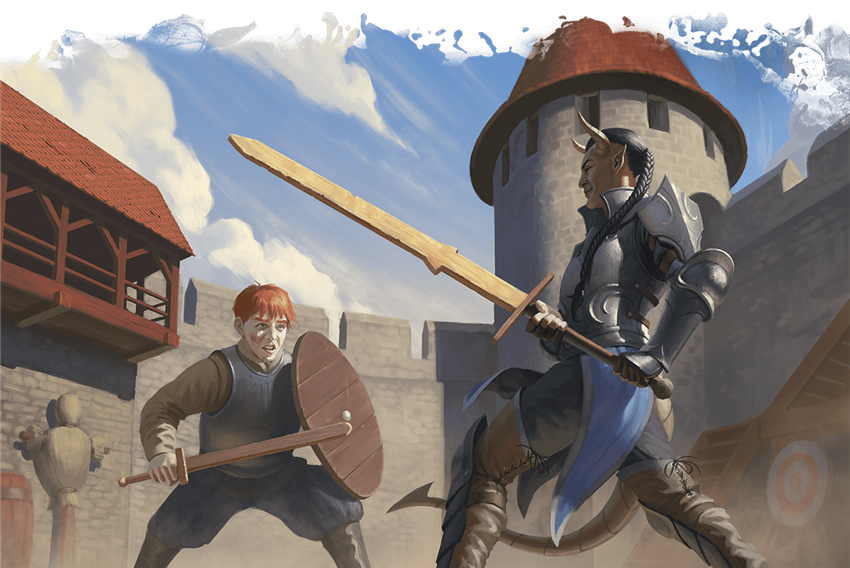
Artificer Initiate
It takes a long road of grueling training to become an artificer. You’ve only just taken a first step down that path, and have learned how to cast some basic artificer spells, as well as gaining proficiency in a type of artisan’s tools that you use to craft your artificer spells.
Remember, artificers “cast spells” not by waving wands and mouthing incantations, but by rapidly creating magical gadgets. If you take this feat, think about how you cast your artificer spells—do you create a pocketwatch that covertly shoots a beam of destructive magical energy like a fire bolt? Or perhaps you know how to whip up an alchemical phial that explodes into a grease trap.
Feats or Multiclassing?
Feats and multiclassing are both optional rules presented in the Player’s Handbook that allow a player to give their character gain powers normally inaccessible to their class, and to give their character narrative depth and nuance through new mechanics. Some gaming groups use both optional rules for maximum customizability, while other groups allow one, the other, or neither, to keep their game simpler or more focused.
The Magic Initiate and Martial Adept feats in the Player’s Handbook are both feats that give characters a taste of another class by granting access to basic spells and martial maneuvers. Tasha’s Cauldron of Everything includes several new feats that work this way: Artificer Initiate, Eldritch Adept, Fighting Initiate, and Metamagic Adept, allowing you to gain a little bit of the power of the artificer, warlock, fighter, and sorcerer classes respectively. If you want to get just a little flavor or power from one of these classes, but don’t want to multiclass (or your group doesn’t use multiclassing rules), these feats are a great way to do so.
Also, if you decide to take one of these feats and ultimately decide you want to multiclass into that class later, you can keep this feat and just have a few extra spells. However, if you want to diversify your skillset, you can also ask your Dungeon Master if they'll allow you to swap this feat out when you gain your first level in that class. They could let you trade your feat for any other feat, or for two +1 bonuses to any ability score.
Chef
You are a master chef! Not only do you have a knack for creating world-class meals, but your culinary creations are so good that they fill all who eat them with enhanced fortitude. They can heal more when they consume your cooking during a short rest, and you can make treats that give them a morale-boosting surge of temporary hit points.
Crusher
This feat is one of a trio of feats that improves your skill with a certain type of physical damage. As a crusher, you are a master of inflicting heavy wounds with bludgeoning weapons and knocking foes around the battlefield as you pummel them silly. This feat synergizes particularly well with monks’ ability to make many unarmed strikes in a single turn.
Eldritch Adept
Have you ever been tempted by magical secrets beyond your ken? Most spellcasters study hard to master the magic of their ancestors, or the magic within them, or magic they found in ancient tomes—but the temptation to take the quick and easy route, to find an otherworldly patron who will gift them untold power, is omnipresent. This feat grants a spellcaster one Eldritch Invocation from the warlock class, which they can change as they level up.
Fey Touched
You have been exposed to raw power from the Feywild, a plane of powerful and tempestuous emotions. This feat represents your connection to the capricious power of the fey by granting you a small bonus to one of your ability scores and the ability to cast misty step and another spell from a particularly fey list.

Fighting Initiate
You’ve undergone rigorous martial training in your downtime, though not enough to become a full-fledged fighter. Instead, you’ve learned how to fight with a particular weapon, allowing you to gain a Fighting Style from the fighter class. Don’t forget that there are a handful of brand-new Fighting Styles in Tasha’s Cauldron of Everything including options for fighting bare-handed, fighting blind, and fighting with thrown weapons.
Gunner
Want the rakish fantasy of being a stylish gunslinger? In addition to granting similar bonuses to the Crossbow Expert feat from the Player’s Handbook, this feat grants you proficiency with firearms, which are described in the Dungeon Master’s Guide.
Metamagic Adept
Sorcerers are masters of using their internal power to modify their spells. You, too, have a small wellspring of this power that allows you to exert your will to twist the nature of your spells. You now have a small pool of sorcery points and two Metamagic options from the sorcerer class to spend them on.
Piercer
Another member of the trio of physical damage feats, this one makes you a master at delivering deadly wounds with piercing weapons by allowing you to reroll damage dice and dealing more damage on a critical hit. A great tool for rogues who use piercing weapons like shortswords and rapiers to deal deadly sneak attacks!
Feats a la Carte
You can gain access to all of these feats by purchasing Tasha’s Cauldron of Everything on the D&D Marketplace, but did you know you can also buy just a single feat—and have the cost of that feat discounted from the book’s full cost if you decide to buy it later? Check out the Marketplace page for Tasha’s and scroll down to see all of the options you can get a la carte if you don’t want the full book now.
Or, consider getting Tasha’s as a gift for the D&D players in your life. Check out the D&D Beyond 2020 Gift Guide and discover how to give the gift of D&D Beyond!
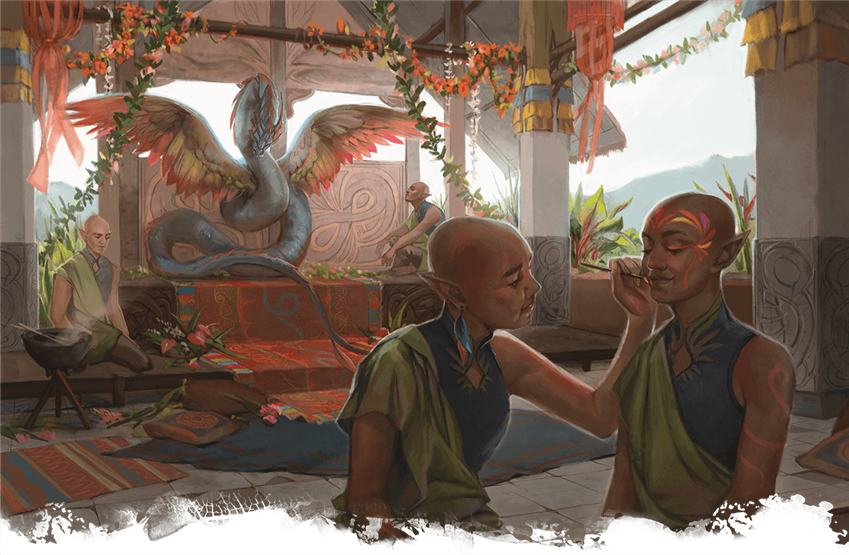
Poisoner
Poison is a tricky thing to use properly, especially when beings like dwarves have constitutions hardy enough to cause even deadly poisons to just give them an aching hangover. This feat lets you ignore resistance to poison damage, poison your weapons rapidly, and even create deadly poisons with a poisoner’s kit. Just beware, creatures with magical biologies like undead, constructs, and most fiends are still immune to poison—no amount of masterful skill can bypass that!
Shadow Touched
Akin to the Fey Touched feat mentioned earlier, a character might gain the Shadow Touched feat from being lost in the drab and ghastly landscape of the Shadowfell. In addition to improving one of your ability scores, you also gain the ability to cast invisibility, as well as another shadowy spell.
Skill Expert
This is a mighty skill for any adventurer to have, but it’s especially useful for bards, rogues, and any other talented expert that might be lovingly called a “skill monkey.” By granting you proficiency in an extra skill and expertise in any skill you’re proficient in, it makes you a master of whatever craft you choose to specialize in.
Slasher
The final of this book’s trio of physical damage-enhancing feats, Slasher makes you a master of slashing weapons. It’s a particularly powerful tool for anyone with natural claws like tabaxi monks or Path of the Beast barbarians, since it lets you hamstring foes to reduce their speed and grievously wound them with critical hits to impose disadvantage on their attacks.
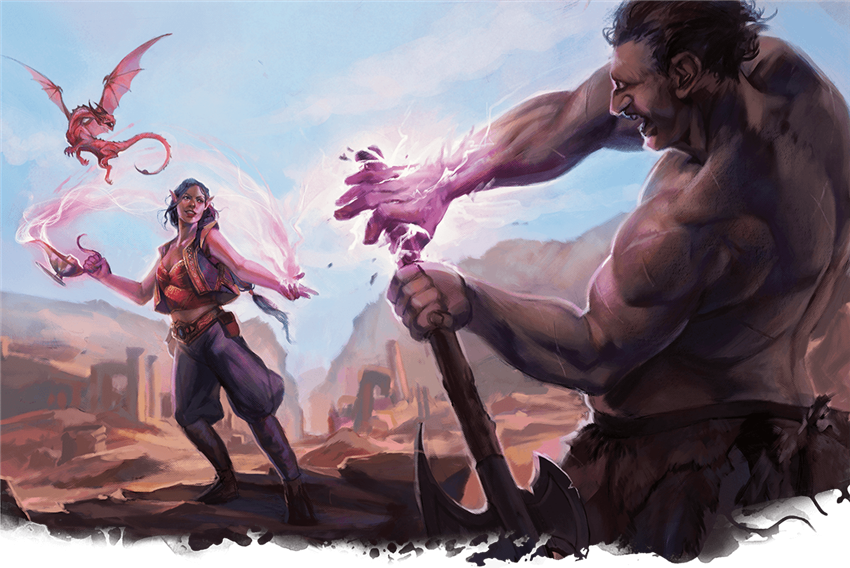
Telekinetic
Anyone studying to be a Psi Warrior would do well to embrace the power of telekinesis, the ability to move things with your mind—and even use that power to shove creatures with your mental force. Combine this feat with a variant human who gains a feat at 1st-level to represent a character born with latent psychic power!
Telepathic
The sister feat to Telekinetic, above, the Telepathic feat gives you the ability to speak to other creatures with your mind. Your powers of telepathy allow you to communicate in a language you know, and to read their thoughts. Great for communicating secrets silently with your party members in tense scenarios—or for spooking patrolling guards and learning your foes’ deepest secrets!
These fifteen feats all provide great ways to enhance your characters’ power and deepen their stories. Check them all out in Tasha’s Cauldron of Everything, available now in the D&D Beyond Marketplace!
Create A Brand-New Adventurer Acquire New Powers and Adventures Browse All Your D&D Content
 James Haeck is the lead writer for D&D Beyond, the co-author of Waterdeep: Dragon Heist, Baldur's Gate: Descent into Avernus, and the Critical Role Explorer's Guide to Wildemount, a member of the Guild Adepts, and a freelance writer for Wizards of the Coast, the D&D Adventurers League, and other RPG companies. He lives in Seattle, Washington with his fiancée Hannah and their animal companions Mei and Marzipan. You can find him wasting time on Twitter at @jamesjhaeck.
James Haeck is the lead writer for D&D Beyond, the co-author of Waterdeep: Dragon Heist, Baldur's Gate: Descent into Avernus, and the Critical Role Explorer's Guide to Wildemount, a member of the Guild Adepts, and a freelance writer for Wizards of the Coast, the D&D Adventurers League, and other RPG companies. He lives in Seattle, Washington with his fiancée Hannah and their animal companions Mei and Marzipan. You can find him wasting time on Twitter at @jamesjhaeck.








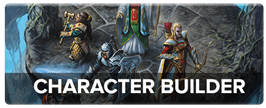
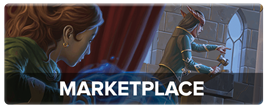

-
View User Profile
-
Send Message
Posted Dec 10, 2020Being a chef will be the best
-
View User Profile
-
Send Message
Posted Dec 10, 2020You guys do know that 'Gourmand' means 'glutton' not 'fine food expert' right?
A gourmand orders nine triple whoppers with cheese, add extra bacon. A gourmet makes one artisinal cheese burger with wagyu ground beef and super nice fixings.
I'm pretty sure you meant gourmet. At least I hope you did.
-
View User Profile
-
Send Message
Posted Dec 10, 2020For the Feats or Multiclassing? box, you can keep the feats if you dip into the class later. It just grants you the extra invocation or extra sorcery points, etc on top of the class features.
-
View User Profile
-
Send Message
Posted Dec 10, 2020That's true! However, some may want to diversify their feat selection to something more than one or two extra spells from Magic Initiate, etc.
-
View User Profile
-
Send Message
Posted Dec 10, 2020D&D is not about any one gameplay style. If you find it fun to play underdog characters, you can do that. If other people want to play a horror campaign, they can do that. If a different group wants to be a party of 20th level near-demigods, they can do that. D&D is about having fun and creating a fun story, whatever that means for you. Personally, I think a jack-of-all-trades is sometimes fun to play, but if you don't, don't play one.
-
View User Profile
-
Send Message
Posted Dec 10, 2020So, the Chef feat requires access to “sufficient food” for meal creation... therefore, playing a chef skilled in monster cuisine would be thematically interesting and mechanically good.
-
View User Profile
-
Send Message
Posted Dec 11, 2020I've noticed that TCoE uses bonus actions more than a lot of other books, presumably to make up for the lack of bonus action versatility, and these feats are no exception!
-
View User Profile
-
Send Message
Posted Dec 11, 2020I'm wondering when the new feats will be optimized for DnD beyond. Right now I grab the extra eldritch invocation feat, but it doesn't let me select another eldritch invocation, it just says I can. Not very integrated.
-
View User Profile
-
Send Message
Posted Dec 11, 2020In our party for Dragon Heist, we have a first level variant human artificer with the Artificer Initiate feat. It's really busted.
-
View User Profile
-
Send Message
Posted Dec 11, 2020Did he really, actually say 'A Rennaissance Man' should not exist... in a fantasy game?! That's the most ridiculous thing I've seen someone who wasn't in politics say.
-
View User Profile
-
Send Message
Posted Dec 11, 2020Did you SERIOUSLY say that a Rennaissance man shouldn't exist... in a fantasy game? Really?
You do know that 'rennaissance man' literally means a man like those in the rennaissance, when people with the abililty to do so studied all kinds of random stuff out of intellectual curiosity? Being highly specialized is, if anything, a MODERN concept. In medieval and rennaissance times you either did everything for yourself (farmers making their own tools, building their own buildings, all the way to scholars studying literally everything they could)
If you "can't agree", you should learn how, because your statement is utterly absurd and ridiculous.
-
View User Profile
-
Send Message
Posted Dec 11, 2020Artificer Initiate is amazing. Be a wizard, take Cure Wounds as the Level 1 spell, always have Cure Wounds if you use your own spell slots.
-
View User Profile
-
Send Message
Posted Dec 11, 2020“Wasn’t in politics"
Yes. Politicians say some... crazy stuff.
-
View User Profile
-
Send Message
Posted Dec 11, 2020It can also mean gourmet. But gourmet is more often used in that context.
-
View User Profile
-
Send Message
Posted Dec 12, 2020Where do I find the feats in the online version of this? I bought this on DND beyond but I can't find the section for feats.
-
View User Profile
-
Send Message
Posted Dec 12, 2020see, you say that, but I can't help but remember the ludicrous shenaniganery that was 3.5e
-
View User Profile
-
Send Message
Posted Dec 13, 2020Bonus flavor points if you find an interesting way to cast your wizard spells using artisan's tools.
Maybe you use alchemist's supplies and you're the kind of alchemist who focuses less on making potions and more on mixing things and having them explode. Maybe you use calligrapher's supplies and you've found a way to cast spells by writing magic words in the air. Or maybe you use weaver's tools and take "the Weave" a little bit too literally.
-
View User Profile
-
Send Message
Posted Dec 13, 2020Cook’s utensils! *spontaneously whips out and throws explosive cupcake*
-
View User Profile
-
Send Message
Posted Dec 13, 2020Both kinda useless, inspiring leader is better than chef, and most of the Monsters are immune to poison... Only a few are resistent...
-
View User Profile
-
Send Message
Posted Dec 13, 2020Skill Expert is litterly just Prodigy but without the requirement ... seems abit like a cheap fix to include all races for a good feat